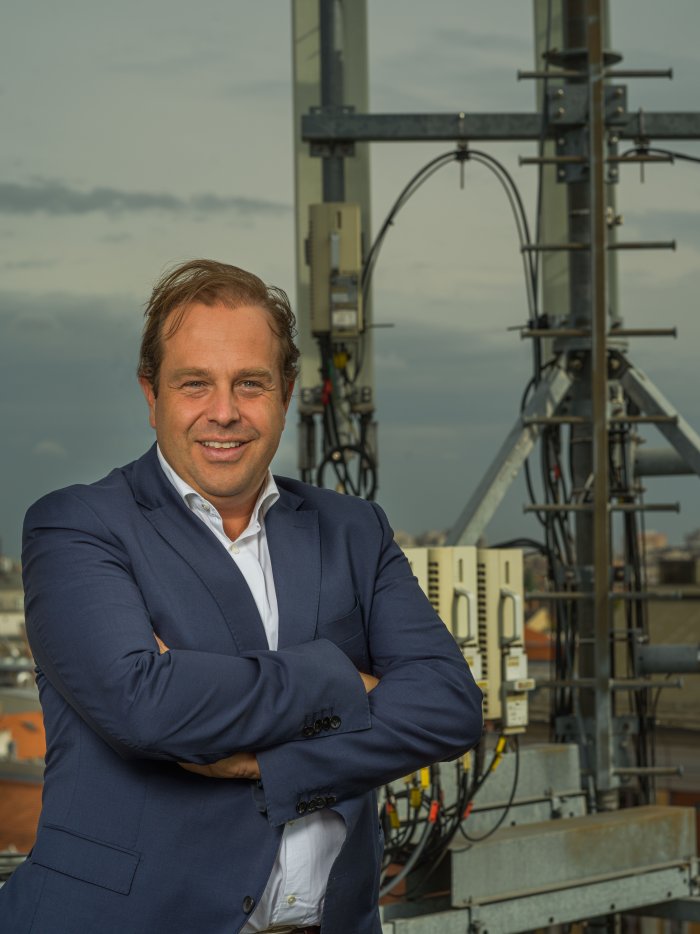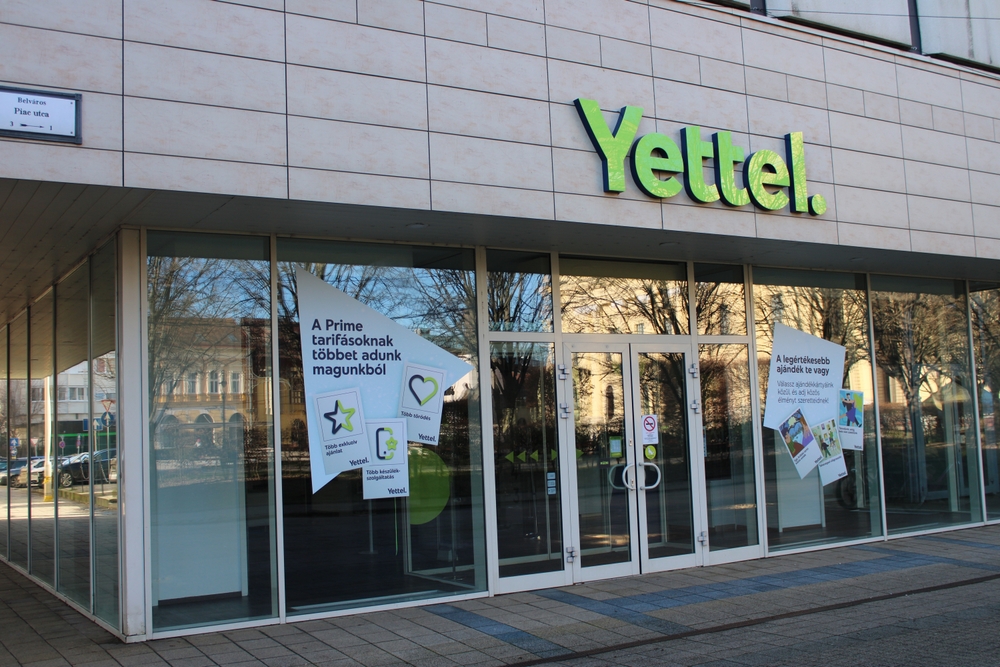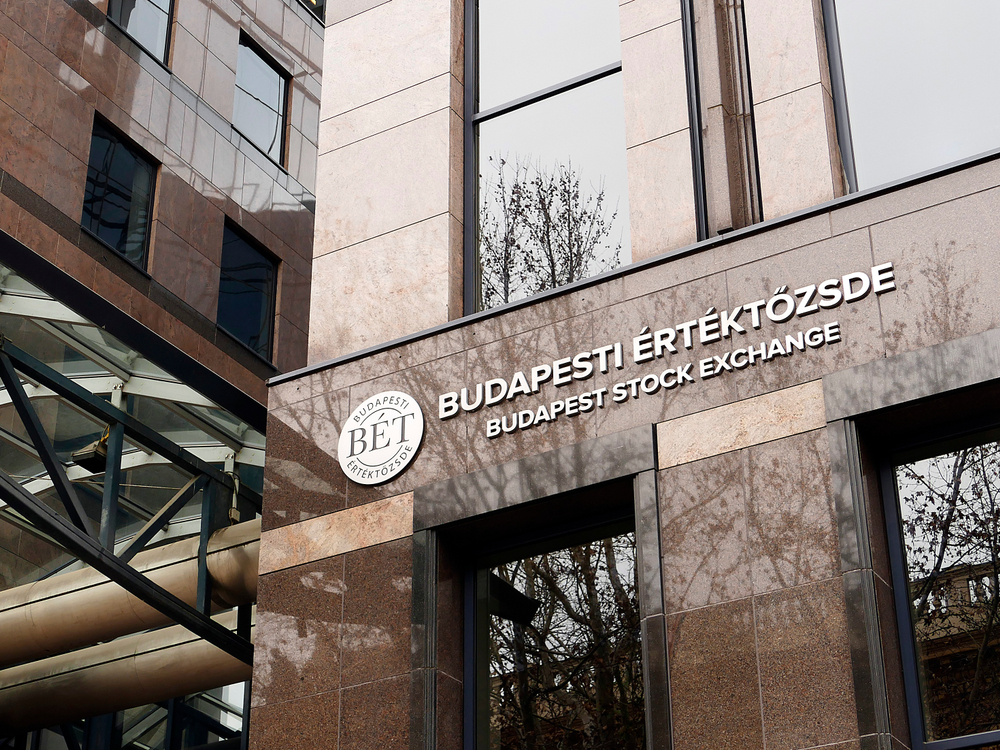Vodafone: Telecoms Industry Hungary’s ‘Invisible Lifeline’

Gergő J. Budai, deputy chairman of the board of Vodafone Hungary, talks with the Budapest Business Journal about the role of the telecommunications sector during the pandemic, the company’s future plans, in particular around 5G.
Gergő J. Budai
BBJ: The world changed overnight in the spring due to COVID-19, and digitalization became even more important. How do you see the role of the telecommunications sector in restarting the economy?
Gergő J. Budai: After the announcement of the state of emergency, Vodafone acted quickly and introduced numerous new services and discounts intended to support the public, businesses and authorities during this difficult period.
I am very proud of our entire industry, as we have been – and are – an “invisible lifeline”, helping the country during this unprecedented period. In the past more than six months, the country’s network infrastructure, of an outstanding quality even in a European context, passed the test with flying colors. I think we can safely say that we succeeded in keeping Hungary connected at a time when it was needed more than ever. Thanks to our networks, life didn’t need to stop, and in the on-line space we could connect with our loved ones, as well as work, teach or learn from home.
Now, in the second phase of the pandemic, the telecoms sector is once again playing a key role. It is in our common interest to keep the country running, as well as to restart the Hungarian economy and support and enhance the competitiveness of businesses. The high-quality and high-capacity telecoms infrastructure and the digital technologies built upon it play a key role in achieving these goals. Accordingly, Vodafone Hungary is ready to contribute to the hard work ahead and steer the Hungarian economy back onto a path of sustainable growth.
BBJ: 5G is one of the cornerstones of your network development efforts, launched a year ago in the inner city of Budapest. How were your 5G developments affected by the pandemic? How far has 5G progressed in Hungary and what developments are expected for the rest of the year?
GJB: Indeed, in the autumn of 2019, we were the first mobile operator in Hungary to launch the country’s first outdoor commercial 5G service accessible by all, in the downtown area of Budapest, starting out with 34 5G base stations.
Fortunately, the pandemic did not significantly affect our network development plans, so the expansion of our 5G coverage could continue in 2020. In March, we purchased additional spectrum at the auction conducted by the National Media and Infocommunications Authority (NMHH): a total of 80 MHz from the 3500 MHz and 700 MHz frequency ranges, which together allow for higher speeds, capacity and coverage.
Thanks to the newly acquired spectrum, we are able to further develop our commercial 5G service. As part of this development, back in the summer we announced a continuation of the rollout in county capitals and around Lake Balaton. In the coming weeks, we will also switch on 5G on approximately 200 base stations in and around Budapest, enabling us to offer outdoor commercial 5G services to even more customers.
BBJ: A few weeks ago, you signed a cooperation agreement with the Budapest University of Technology and Economics (BME), which also affects Vodafone’s 5G network. Can you tell us a little more about this?
GJB: Present and future generations of engineers will play a significant role in enabling 5G’s amazing capabilities, allowing us to explore the broadest possible range of use cases for this technology. Therefore, it is particularly important that students receive an education that enables them to use and experiment with the latest, most up-to-date technology, preparing them for the labor market. We wish to contribute to this by bringing 5G, the most essential technology of our times, to the university.
Under the cooperation agreement, we will provide BME with 40 MHz frequency in the 3500 MHz band, separated from our own core network, which will be sufficient for running the 5G network across the full territory of the university, in the area from Rákóczi híd to Szabadság híd. This will help advance innovations built upon 5G at the university, as well as the joint participation of BME and Vodafone in the European Union’s 5G-themed research and development programs.
BBJ: Let’s talk about the base stations that are essential for the operation of the network. In July, Vodafone Group announced that it would outsource passive base station elements into stand-alone companies. Where are you in this process now?
GJB: Last year, Vodafone Group, our parent company, announced the outsourcing of passive base station components in operation at its European subsidiaries, including in particular, but not limited to, towers, antenna support structures, power supply equipment and the facilities and containers used for storing active components, as well as any related air conditioning equipment and indoor antenna systems, into stand-alone companies, for more efficient utilization and sustainability. The new company, established under the name Vantage Towers, will be one of Europe’s market-leading tower infrastructure companies.
Vodafone Hungary will also join this group-level initiative, and from November 1, 2020, Vantage Towers Hungary will own and operate Vodafone’s passive base stations in Hungary. The newly established company will be demerged from Vodafone Hungary.
BBJ: What does this mean in practice? What is the significance of this move from a business perspective? Is this linked to 5G developments?
GJB: The construction and development of a modern mobile infrastructure will accelerate the digital advancement of both Europe and Hungary, facilitating the rapid deployment of 5G technology, which, in turn, will enable the widespread adoption of additional new technologies in areas such as transport, urban life, smart cities, agriculture, healthcare or education.
This transformation also supports the proliferation of network sharing schemes in Hungary, allowing other players in the infocommunications and other industries to use our passive network components and infrastructure.
At this point, I also consider it important to emphasize that we have treated and continue to treat sustainable business operations as a top priority. Nothing proves this more than the fact that from November 2020 we will satisfy the power consumption of all our domestic base stations exclusively from renewable energy sources.
SUPPORT THE BUDAPEST BUSINESS JOURNAL
Producing journalism that is worthy of the name is a costly business. For 27 years, the publishers, editors and reporters of the Budapest Business Journal have striven to bring you business news that works, information that you can trust, that is factual, accurate and presented without fear or favor.
Newspaper organizations across the globe have struggled to find a business model that allows them to continue to excel, without compromising their ability to perform. Most recently, some have experimented with the idea of involving their most important stakeholders, their readers.
We would like to offer that same opportunity to our readers. We would like to invite you to help us deliver the quality business journalism you require. Hit our Support the BBJ button and you can choose the how much and how often you send us your contributions.







